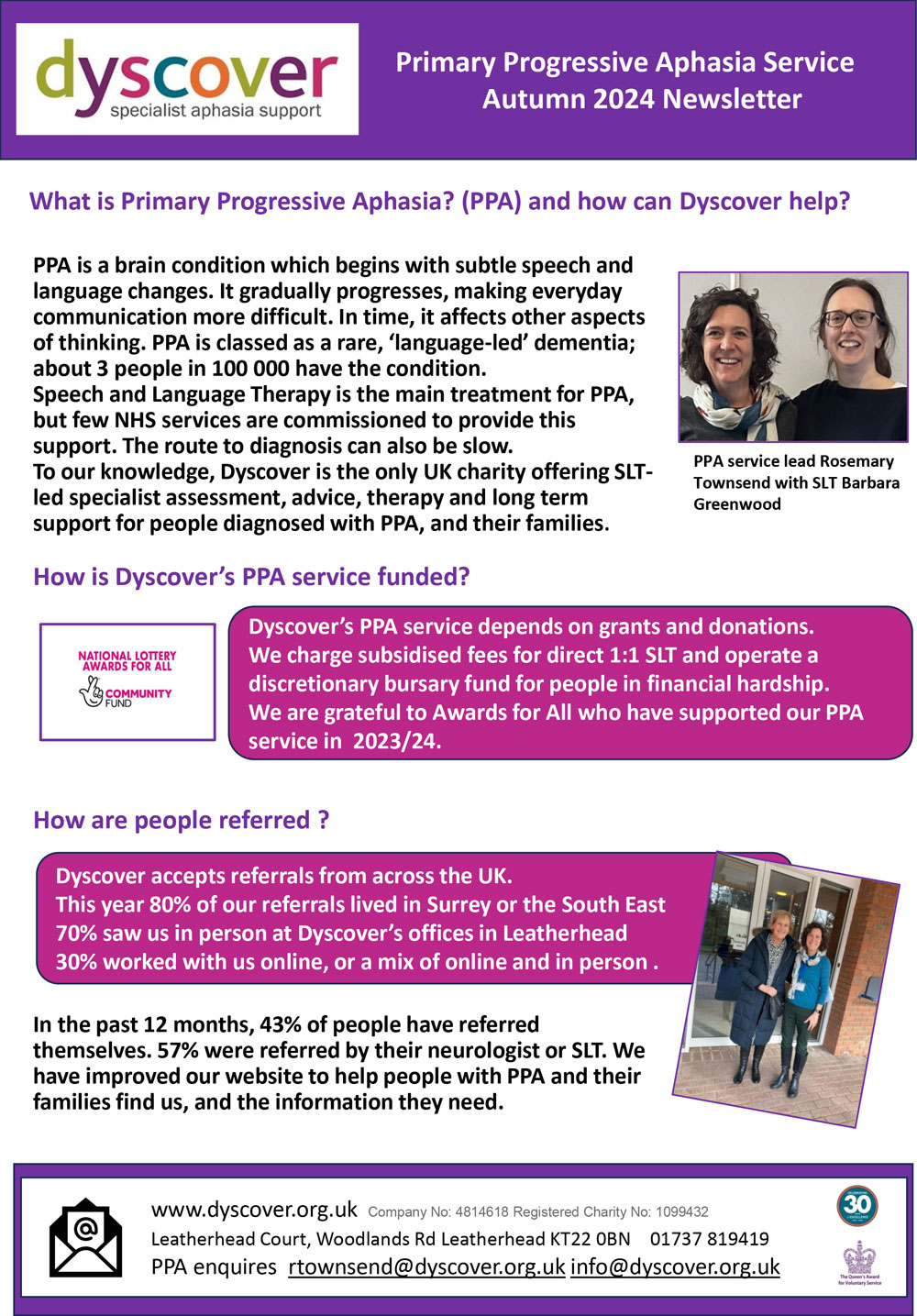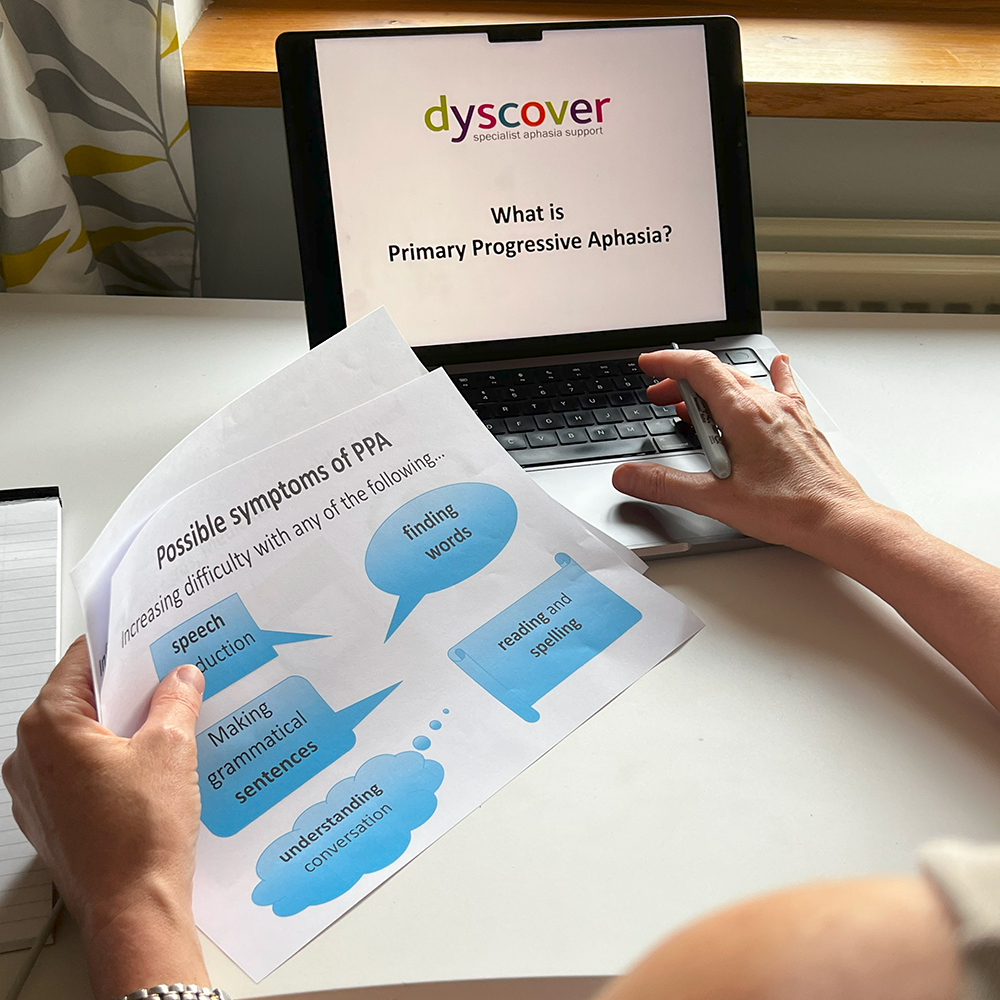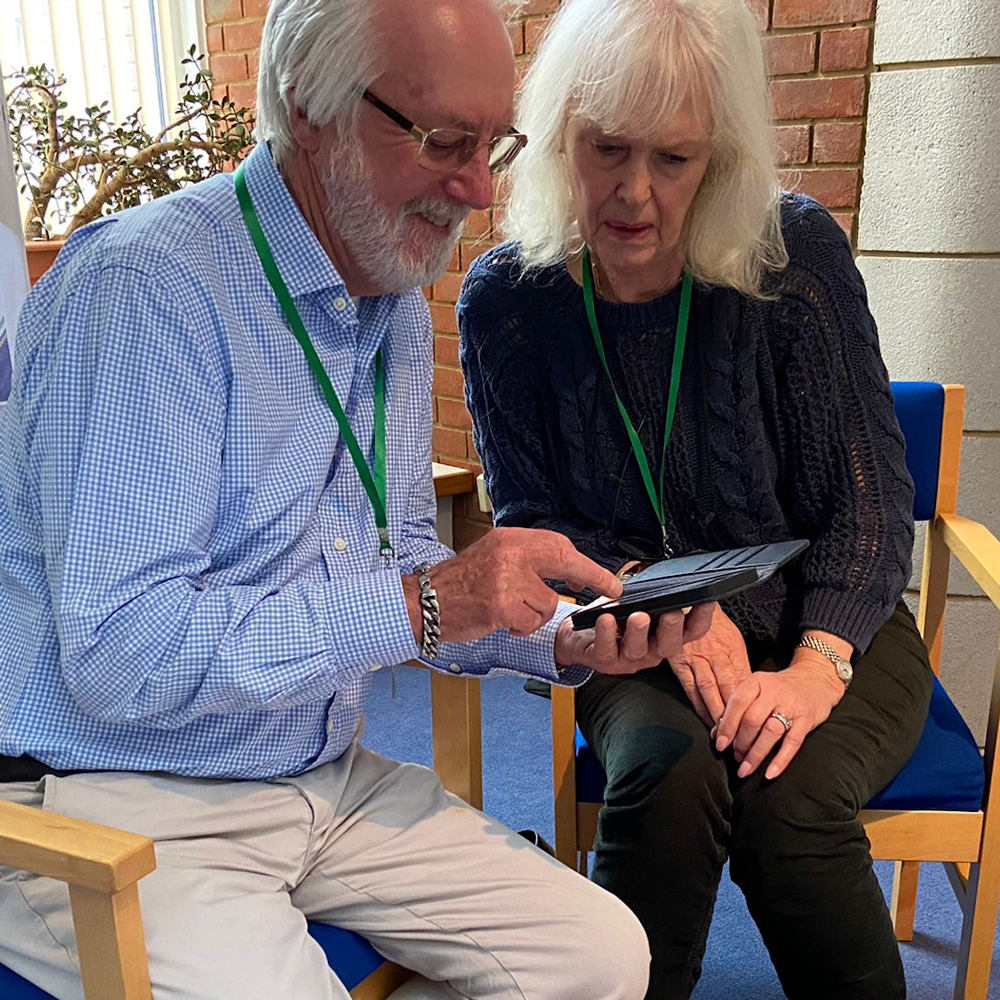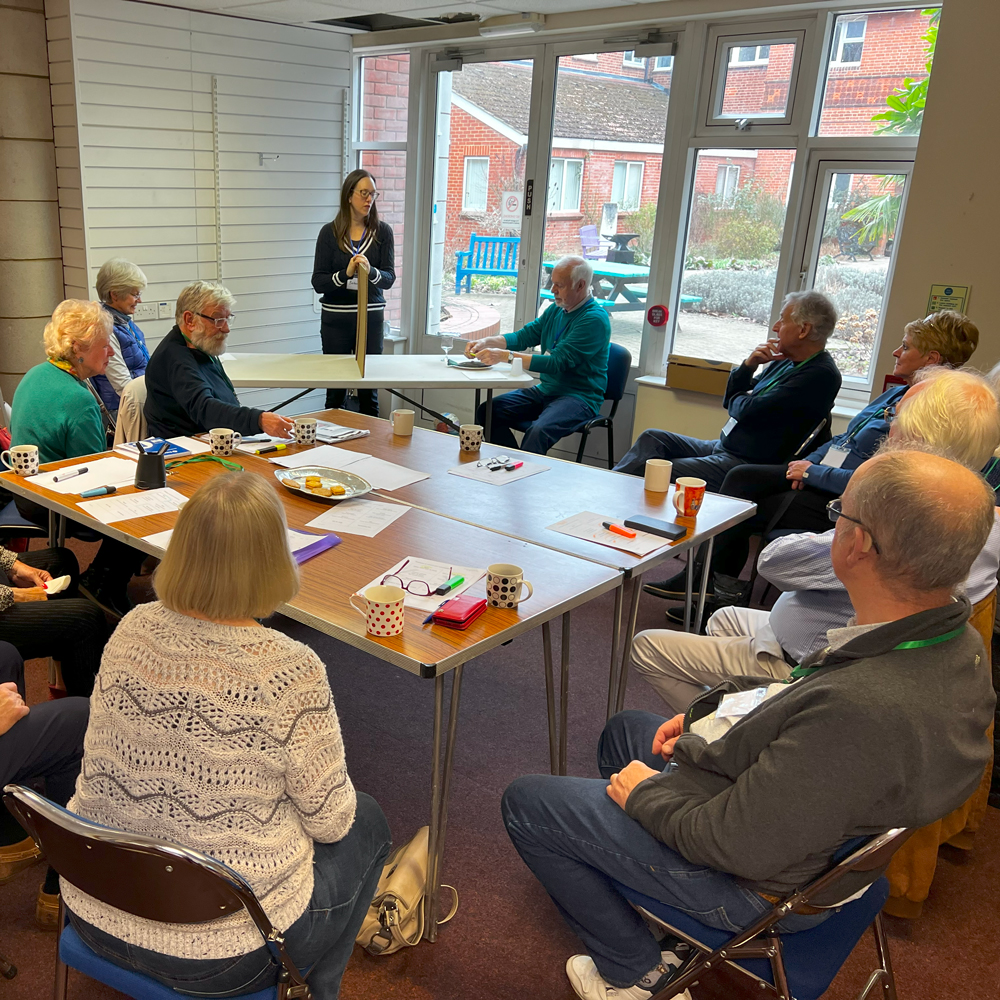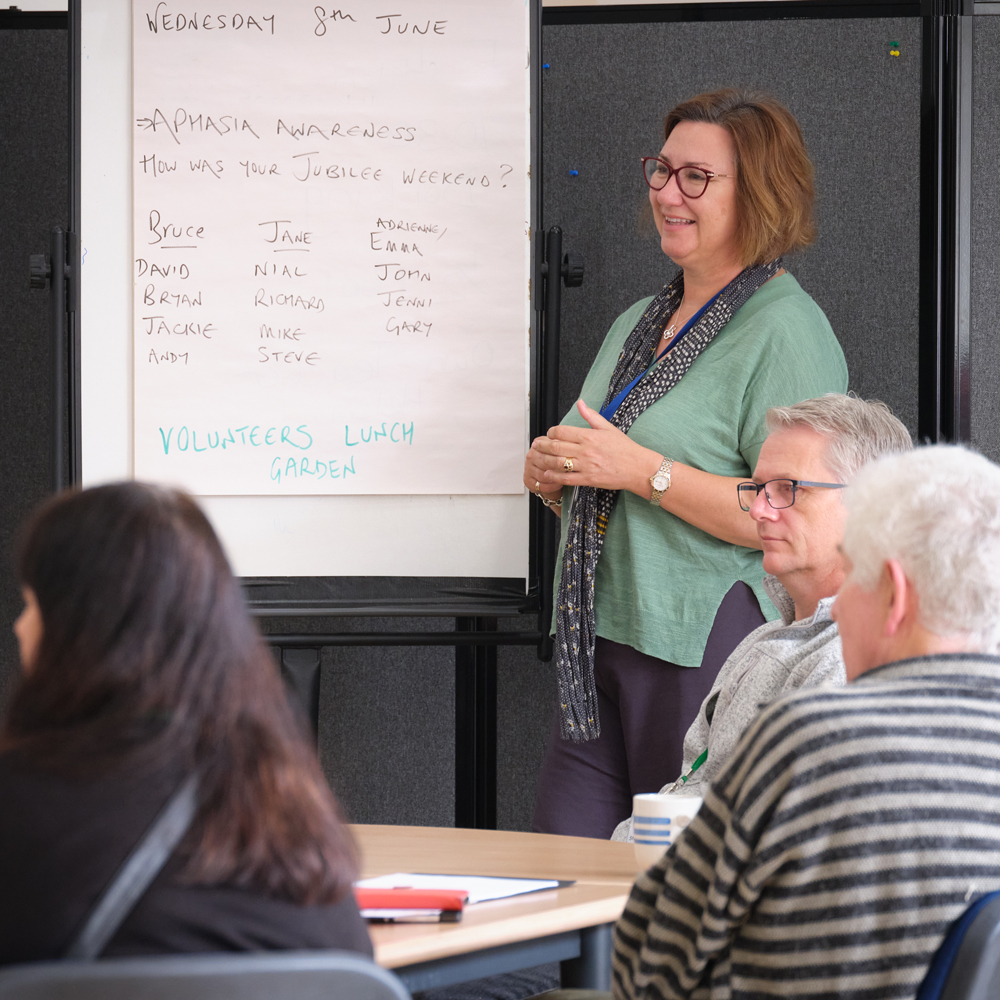Primary Progressive Aphasia (PPA) is a rare dementia syndrome in which progressive loss of speech and language is the dominant symptom.
Speech and Language Therapy (SLT), when delivered by experienced clinicians and tailored to the individual’s changing needs, can play a valuable role in helping people with PPA and their families to manage their everyday communication.
We support over 100 people a week whose aphasia is caused by stroke. People with PPA have different needs. We have been running our dedicated PPA service since 2015.
The service is now expanding and has our former Director of Service, Rosemary Townsend, our expert clinician in this area, leading this unique and sought after service. Based on feedback from people we have already helped, research evidence, and on our own clinical experience these services are designed to support people at different stages of PPA.
We accept self-referrals, or referral from a health professional. All people referred are assessed for suitability before therapy is offered.
All Support and interventions are offered in person and online. A subsidised charge is made for our services.
People with PPA are encouraged to attend sessions with a partner or family member but can be seen alone if appropriate.
Get in touch to speak to an expert about which of our services are most suitable for you or your family. Below are some examples of the kind of course which we may offer you.

